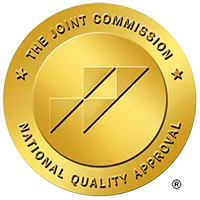Alcohol is also highly addictive, with signs of alcoholism including an inability to control or stop your drinking and alcohol damaging multiple areas of your life. Many need a Denver alcohol addiction rehab program to help put them on the right path.
Alcohol is one of the most widely used, and abused, psychoactive substances in the United States. In fact, more than 66 million Americans engaged in binge drinking within the past year. Binge drinking occurs when you consume more than five servings of alcohol in one sitting. Since it takes your liver at least one hour to metabolize and filter alcohol, drinking more than one alcoholic beverage in an hour leads to significant intoxication.
Ethanol is the active ingredient in alcohol that leads to intoxication. While relatively safe in small amounts, ethanol is fatal in excess. Alcohol causes poor judgment, lowers inhibition, and impairs motor skills. This can lead to injuries, drunk driving, substance abuse, and poor decision making.
Signs of Alcoholism
Alcohol causes pleasurable feelings and intoxication because it forces your brain to release excessive amounts of GABA, serotonin, and dopamine. GABA, serotonin, and dopamine create feelings of happiness, elation, and euphoria. Unfortunately, when the effects commence, your brain becomes depleted of these neurotransmitters.
Your brain experiences cravings when you don’t drink and can become completely dependent on alcohol to release neurotransmitters. The physical dependence on alcohol can cause serious and intense withdrawal symptoms. Early signs of alcoholism include needing to drink more in order to feel the same effects and experiencing increased alcohol tolerance.
Other signs of alcoholism include:
- Drinking in excess alone
- Drinking in inappropriate situations or environments
- Needing to drink when you wake up in order to feel normal
- Going to work or school intoxicated
- Craving alcohol when you don’t drink
- Friends or family members confronting you about your alcohol use
How Alcoholism is Treated
Since alcohol creates both physical and psychological dependency, you can experience intense withdrawal symptoms when you immediately stop drinking. Certain withdrawal symptoms, while rare, can lead to serious medical complications or even death. Delirium tremors can cause you to experience hallucinations, delirium, confusion, and seizures.
Alcohol withdrawal symptoms are best treated by finding help from a treatment center, which can offer partial hospitalization programs that can monitor and alleviate your withdrawal symptoms. Alcoholism is a chronic condition, meaning that you must manage your symptoms throughout your lifetime, even if you aren’t drinking.
During recovery, your brain and body begin to heal. Sometimes the healing process can cause mood changes or worsen underlying medical and mental health conditions. Treatment programs can help you learn how to deal and cope with triggers, cravings and negative emotions without turning to alcohol for relief. Individual counseling can help you address the root causes of your alcoholism and teach you how to better control your thoughts, feelings, and behaviors.
Do You See Signs of Alcoholism?
If you or a loved one is exhibiting signs of alcoholism, it is important to reach out for help. The earlier you address substance abuse and alcoholism, the easier it is to recover. Red Rock Recovery Center, which has the leading Denver alcohol addiction rehab program focused on helping you achieve sobriety, is here to help. Call us today at [Direct] to learn more about our programs.




